- Home
- Captain W E Johns
26 Biggles Sweeps The Desert Page 4
26 Biggles Sweeps The Desert Read online
Page 4
It was in going back to my machine that I lost my way.'
Biggles looked amazed at this recital—as he had every reason to. He was silent for a moment.
`We shall have to get all these facts in line,' he said presently. 'Assuming that, like me, you had compass trouble, I came out to look for you. I found your machine and landed by it. I was a bit worried to find you weren't with it. I was wondering where you could have gone when I heard someone laughing and shouting
`You heard me—from the Spitfires?'
`Certainly.'
Ginger stared. 'Then I must have been wandering about close to my machine?'
Ì don't know about that,' replied Biggles. 'All I can tell you is the Spitfires are just behind those rocks on the left—less than a hundred yards away.'
`Just imagine it,' said Ginger bitterly. 'I might have passed out from thirst within a hundred yards of water.'
`That's how it happens,' said Biggles seriously. `Don't say I didn't warn you. But let's get to the machines. Thank goodness the heat isn't quite so fierce now the sun is going down.
'
Dusk was, in fact, advancing swiftly across the shimmering waste as the sun sank in a final blaze of crimson glory. There was just time to walk to the Spitfires, make a trip to the crashed Rapide, and return, before complete darkness descended on the wilderness.
The heat, as Biggles had remarked, was less fierce; but the atmosphere was stifling as every rock, and every grain of sand, continued to radiate the heat it had absorbed during the day.
Biggles leaned against the fuselage of his machine and lit a cigarette. 'I don't feel like taking off in this black-out,' he told Ginger. Nor do I feel like risking a night flight across the desert with a compass that isn't entirely to be relied on. We're in no particular hurry.
The moon will be up in an hour, so we may as well wait for it. I've some thinking to do, and I can do that as well here as anywhere. Tell me, in which direction was the Dragon flying when you last saw it—presumably the sound of the crash came from the same direction?'
`Yes,' answered Ginger. 'It was over there.' He pointed to the escarpment, its jagged ridge boldly silhouetted against the starlit heavens. 'I couldn't swear how far it was away, because sounds are so deceptive here, but I wouldn't put it at more than five miles. What are you thinking of doing?'
Ì was wondering if we should try to find it.'
Not for me,' declared Ginger. 'I've had one go at that sort of thing. You got me out of the frying-pan, and I don't want to fall in it again.'
`There's less risk of that at night, when you have stars to guide—Great Scott! What's that?'
For a little while both Biggles and Ginger stood staring in the direction of the escarpment, beyond which a glowing finger of radiance, straight as a ruler, was moving slowly across the sky.
Ìt's a searchlight,' declared Ginger.
Ìf it is, then it's a dickens of a long way away,' returned Biggles. 'Whatever it is, it's mobile. Look at the base of it—you can see it moving along the rock... that's queer, it's stopped now. I think I know what it is. It's the headlight of a car, deflected upwards.'
À car!' said Ginger incredulously. 'A car—here—in the desert?'
`You haven't forgotten that a car came out to the crashed Rapide—or a vehicle of some sort? It was not one of ours; therefore it must have belonged to the enemy. Whoever shot the Rapide down would report where it had crashed. Unless I'm mistaken, the same thing is happening now. A car is on its way to the crashed Dragon. If it can't get right up to it, no doubt it will go as close as possible; the people in it can walk the rest of the way. This is an opportunity to learn something definite, and I don't feel inclined to miss it. Our machines will be safe enough here—unless the car
comes this way, which seems unlikely. Anyway, it's a risk worth taking.'
With Ginger's water-bottle slung over his shoulder, Biggles started off in a direct line towards the light, which still appeared as a faint, slender beam, like a distant searchlight.
From the top of the escarpment a good deal more of it could be seen—the lower part, which descended to a point.
`No British forces are operating in this district, so whoever is putting that beam up must be an enemy,' said Biggles thoughtfully, as he stood staring at it.
`How far away do you think it is?'
`That's impossible to tell, because we don't know the strength of the beam. It might be a weak one fairly close, or a powerful one a long way off. What puzzles me is why it is turned upwards. It can't be looking for aircraft.'
Ìt could be a signal, a signpost, so to speak, for airmen.'
`Possibly, but unlikely, for there seems to be no reason why enemy aircraft should operate at night.' Biggles laughed shortly. 'What a fool I am—the heat must have made me dense. The beam is a signpost, probably a rallying point, for people out in the desert on foot looking for the crashed Dragon. That, I think, is the most likely answer. Let's go on for a bit; maybe we shall see something. Speak quietly, and make no more noise than you can prevent, because we're approaching a danger zone, and sound travels a long way in the desert.'
They went on in silence, climbed the ridge that had baffled Ginger, and the one beyond it, which they discovered dropped sheer for about forty feet to a lower level of sand, generously sprinkled with broken rock.
In the deceptive starlight they nearly stepped over the edge before they realized how steep was the drop. They went a little way to the right hoping to find a way down, and finding none, tried the left; but the cliff—for they were on the lip of what might best be described as a low cliff— seemed to continue for some distance. There were one or two places where a descent appeared possible, and once Ginger moved forward with that object in mind; but Biggles held him back.
Ì'm not going to risk it,' he said in a low voice. 'This desert rock isn't to be trusted; wind and sun make it friable; if it broke away and let us down with a bump we might hurt ourselves. If we were nearer home I wouldn't hesitate, but this is no place for even a minor injury—a sprained ankle, for instance. We're some way from the machines, too.
But here comes the moon. Let's try to get a line on the light; if we can do that we may be able to check up in daylight.' So saying, Biggles lay flat and using his hands to mask the surrounding scenery, focused his attention on the foot of the beam.
Following his example, Ginger made out what appeared to be three successive ranges of low hills which, from their serrated ridges, were obviously stark rock. The light sprang up from behind the farthest, which he estimated to be not less than twelve miles away.
He tried to photograph the silhouette of the rocks in line with the beam on his brain, this being made possible by certain salient features. In the first range there was a mass of rock that took the form of a frog, and behind it a group of four small pinnacles that might have been the spires of a cathedral. These were near enough ,in line with the beam to fix its position should the light be turned out, and he mentioned this to Biggles, who agreed,
but reminded him that when
they had first seen the light it had been moving, which proved that it was not constant.
The moon, nearly full, was now clear of the horizon, and cast a pale blue radiance over the wilderness. It was not yet light enough to read a newspaper, as the saying is, but it was possible to see clearly for a considerable distance; and if the lifeless scene had been depressing by day, thought Ginger, it was a hundred times worse at night.
He was about to rise when from somewhere—it was impossible to say how far away—
there came a sound, a noise so slight that in the ordinary way it might well have passed unnoticed. It was as though a small piece of rock had struck against another.
Biggles' hand closed on Ginger's arm. 'Don't move,' he breathed.
Ginger, his muscles now taut, lay motionless, his eyes probing the direction from which he thought the sound had come, which was on the lower level to the right of where he lay. He stared and
stared until the rocks appeared to take shape and move—not an uncommon reaction in darkness when nerves are strained. Moving his head slightly until his mouth was close to Biggles' ear, he whispered, 'Perhaps it was a jackal.'
Biggles shook his head. 'Nothing lives in this sort of desert.'
Another rock clicked, nearer this time, and Biggles hissed a warning.
Staring again at the lower level, Ginger saw that a group of what appeared to be shadows was moving silently towards them. Very soon they took shape, and it was possible to distinguish men and camels. There were six camels carrying riders, and a number of men walking behind them. Two of the camel riders rode side by side a little in advance of the rest of the party. The other four camels moved noiselessly in single file. Magnified by the flat background behind them they were huge, distorted, more like strange spirits of the desert than living creatures. They came on, heading obliquely towards the distant light.
When the two leaders were quite close a voice spoke, suddenly, and the sound was so unexpected and so clear that Ginger stiffened with shock. But it was not only the actual sound that shook him; it was the language that the speaker had used.
Speaking in German, he had said in a harsh tone of voice: 'I'll tell these young fools of mine to let machines get farther in, in future, before they shoot them down. It's a good thing you know this country as well as you do, Pallini.'
A voice answered haltingly in the same language: `Yes, Hauptmann von Zoyton, it is a long way again. It was near here that the last machine was brought down. Fortunately I know every inch of the country, but it is always a good thing to have a light to march on.
It makes it easier.'
It was now possible to see that both riders wore uniforms, although it was not easy to make out the details. Ginger watched them go past, with the words still ringing in his ears. Then the second part of the caravan drew in line. It comprised, first, the four camels, but this time the riders seemed to have their bodies wrapped in ragged sheets which reached up to their mouths, leaving only the eyes exposed. Rifle barrels projected high above their shoulders. Behind, strid-ing on sandalled feet, were four other men similarly dressed, acting, it seemed, as an escort for five men who walked together in a dejected little group. Four were civilians and the other an officer, a heavily-built man with a square-cut black beard. Ginger caught the flash of gold braid on his sleeves and shoulders. These, too, passed on, and soon the entire caravan had merged as mysteriously as it had appeared into the vague shadows of the nearest range of hills.
Biggles neither moved nor spoke for a good five minutes after the party had disappeared.
When he did speak his voice was the merest whisper.
`Very interesting,' he murmured. 'We're learning quite a lot.'
`Who did you make them out to be?' asked Ginger.
Òf the two fellows in front, one was a German and the other Italian. The Italian, whom the other called Pallini, was probably a local political officer—that would account for his knowing the country. His companion, you will remember, he called von Zoyton. It may not be the same man, but there has been a lot of talk up in the Western Desert about a star-turn pilot named von Zoyton —he commands a Messerschmitt jagdstaffel , and has some sort of stunt, a trick turn, they say, that has enabled him to pile up a big score of
victories. I'm inclined to think it must be the same chap, sent down here for the express purpose of closing our trans-continental air route. The other mounted fellows, judging by their veils, were Toureg. There were also some Toureg on foot. The five people with them were prisoners, the passengers of the Dragon, on their way, no doubt, to the enemy camp. The beam was put up as a guide.'
`You seem very sure of that,' said Ginger curiously.
Ì'm certain of it,' declared Biggles. 'You see, the fellow with the black beard was General Demaurice. I've never seen him in the flesh before, but I recognized him from photographs.'
Ìs he an important man?'
`Very.'
`Then why didn't we attempt a rescue? We had the whole outfit stone cold. They had no idea we were here.'
Àll right; don't get worked up,' replied Biggles quietly. 'It was neither the time nor place for a rescue. To start with, they were forty feet below us, and to break our legs by jumping down would have been silly. Suppose we had got the prisoners, what could we have done with them? We couldn't fly five passengers in two Spits, and they certainly couldn't have walked to Salima Oasis.'
`We could have fetched the Whitley from Karga.'
`Long before we could have got it here the Messerschmitts would have been out looking for us. Don't suppose I didn't contemplate a rescue, but it seemed to me one of those occasions when restraint was the better part of valour. Don't worry, our turn will come.
We're doing fine. We know definitely that enemy machines are operating in the desert, and the approximate direction of their base. The only thing we have to reproach ourselves about is the loss of the Dragon, although now we know the technique that is being employed we ought to be able to prevent such a thing from happening again.
Cruising about the desert with a compass that is liable to go gaga at any moment is, I must admit, definitely disconcerting; it means that we shall have to check up constantly on landmarks—such as they are.'
`How about the Messerschmitts— why aren't their compasses upset at the same time?'
Biggles thought for a moment. 'There may be several answers to that,' he answered slowly. 'Their compasses may be specially insulated, or it may be they don't take off until the beam is switched off. The object of the beam seems to be to bring machines flying over the route nearer to the German base, to save the enemy from making long journeys in surface vehicles to the scene of a crash.'
`Why do they want to visit the crash, anyway?'
`To collect any mails or dispatches that are on board.'
Òf course, I'd forgotten that.' Ginger stood up. 'As nothing more is likely to happen to-night we may as well be getting back.'
`Not so fast,' answered Biggles. 'We can't take off yet, or the noise of our engines will be heard by von Zoyton and his party. We don't want them to know we're about. Still, we may as well get back to the machines.'
Biggles got up and led the way back to where the two Spitfires were standing side by side, looking strangely out of place in such a setting. He squatted down on the still warm sand and allowed a full hour to pass before he climbed into his cockpit. As he told Ginger, he had plenty to think about and plans to make. But at length, satisfied that the desert raiders were out of earshot, he started his engine. Ginger did the same. The machines took off together and cruised back to the oasis, which was reached without mishap,
to find the others already making arrangements for a search as soon as it was light.
`Thank goodness you're back,' muttered Algy. 'At the rate we were going there would soon have been no squadron left,' he continued, inclined to be critical in his relief. 'What'
s going on?'
`Sit down, and I'll tell you,' answered Biggles, and gave the others a concise account of what had happened.
Tug Carrington made a pretence of spitting on his hands. 'That's grand,' he declared, balancing himself on his toes and making feints at imaginary enemies. `Now we know where they are we can go over and shoot them up.'
`Tug, you always were a simple-minded fellow,' returned Biggles sadly. 'As you know, I'
m all for direct methods when they are possible, but there are certain arguments against your plan that I can't ignore. To start with, there is no guarantee we should locate the enemy's base—you can be pretty certain it's well camouflaged—whereas they would certainly see us. It is, therefore, far more likely that we should merely reveal our presence without serving any useful purpose. When we strike we want to hit the blighters, and hit them hard, and we shall only do that by being sure of our ground. Make no mistake; if von Zoyton is here with his jagdstaffel, we shan't find them easy meat.
They had a reputation in Li
bya. No, I think the situation calls for stratagem.' Biggles smiled at Algy. 'I wonder if we could pull off the old trap trick?'
`Which one?' asked Algy, grinning. 'There were several varieties, if you remember?'
`The decoy.'
`We might try it. But what shall we use for bait?'
`The Whitley.'
`You must think von Zoyton is a fool. He wouldn't be tricked by that.'
Ì wasn't thinking of sending it through in its present war paint. By washing out the ring markings, and giving it a set of identification letters, we could make it look like a civil machine. Let's try it. After all, it can but fail. Remember, the Boches don't know we're here. Bertie, you've had a quiet day. Do you feel like playing mouse in a little game of cat-and-mouse?'
Bertie polished his eyeglass industriously. 'Absolutely, old top,' he agreed. 'I'll play any part you like, you bet I will, if it means hitting von what's-his-name a wallop.'
`That's fine,' returned Biggles. 'This is what you have to do. Go to Karga. Tell Angus what's in the wind. Get all hands working on the Whitley, making it look as much like a civil machine as possible. Then, at dawn, take off and fly it through. You'll have to work fast. Come over here at about ten thousand, and then head for the danger zone.
`Here, I say, what about some guns?' protested Bertie.
`You can stick as many guns in as you like, as far as I'm concerned,' granted Biggles. '
Angus will provide you with some gunners. But don't go fooling about. You're not supposed to fight. Leave that to us. We shall be upstairs, waiting for the Messerschmitts.
Angus can send out a radio signal that you're on your way. If von Zoyton picks it up he'll soon be after you. Is that clear?'
Àbsolutely, yes, absolutely,' murmured Bertie. `What fun! Here I go. See you in the morning. Cheerio, and so forth.'

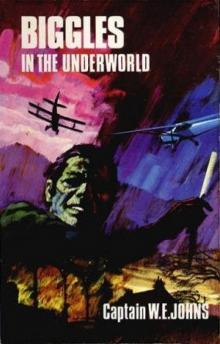 Biggles in the Underworld
Biggles in the Underworld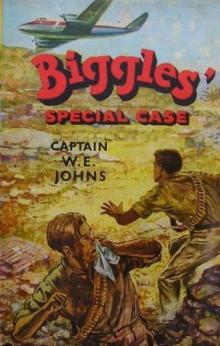 Biggles' Special Case
Biggles' Special Case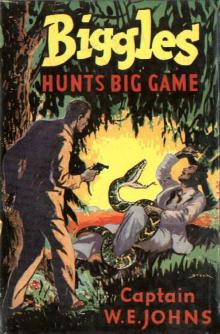 34 Biggles Hunts Big Game
34 Biggles Hunts Big Game 03 Now To The Stars
03 Now To The Stars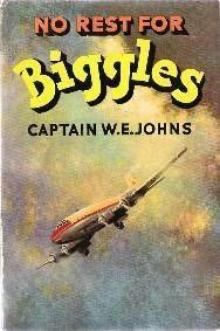 55 No Rest For Biggles
55 No Rest For Biggles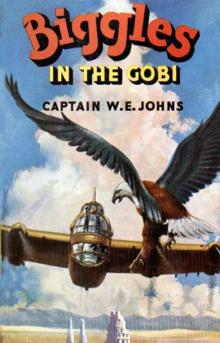 46 Biggles in the Gobi
46 Biggles in the Gobi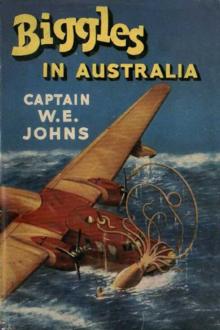 52 Biggles In Australia
52 Biggles In Australia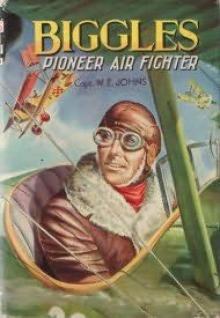 51 Biggles Pioneer Air Fighter
51 Biggles Pioneer Air Fighter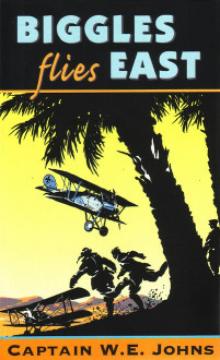 05 Biggles Flies East
05 Biggles Flies East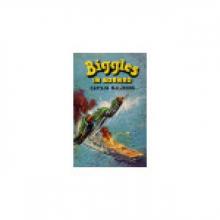 28 Biggles In Borneo
28 Biggles In Borneo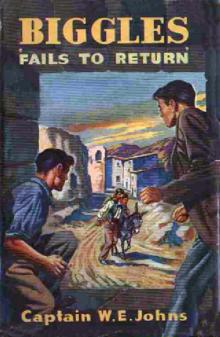 29 Biggles Fails to Return
29 Biggles Fails to Return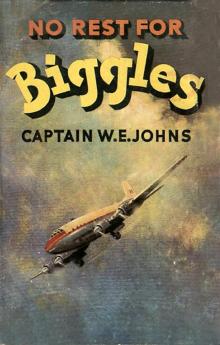 55 No Rest For Biggles (v2)
55 No Rest For Biggles (v2)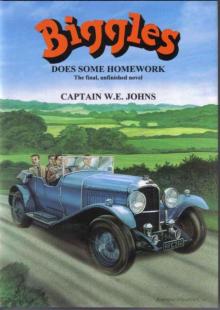 Biggles Does Some Homework
Biggles Does Some Homework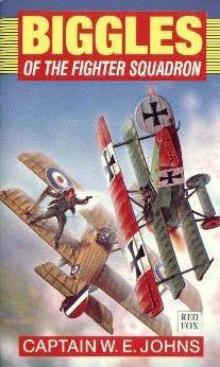 Biggles of the Camel Squadron
Biggles of the Camel Squadron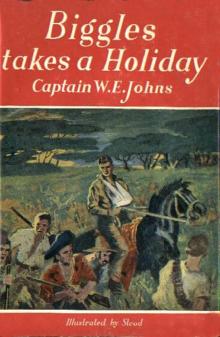 35 Biggles Takes A Holiday
35 Biggles Takes A Holiday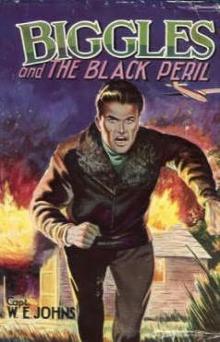 Biggles And The Black Peril (06)
Biggles And The Black Peril (06)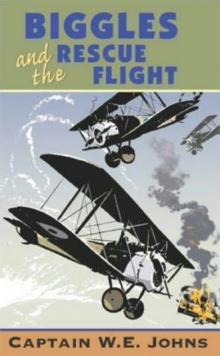 17 Biggles And The Rescue Flight
17 Biggles And The Rescue Flight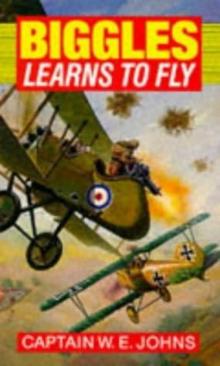 Biggles Learns To Fly
Biggles Learns To Fly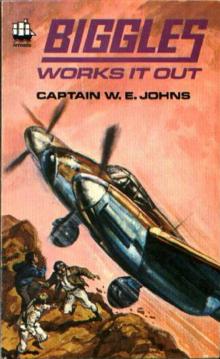 40 Biggles Works It Out
40 Biggles Works It Out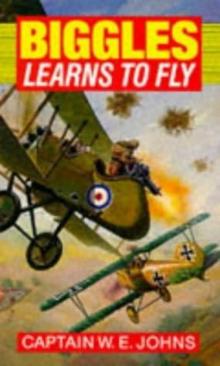 05 Biggles Learns To Fly
05 Biggles Learns To Fly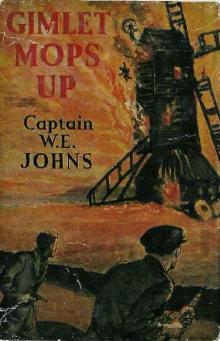 04 Gimlet Mops Up
04 Gimlet Mops Up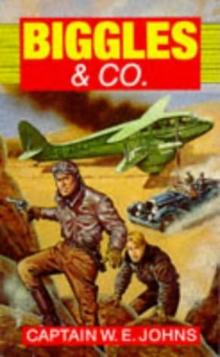 10 Biggles and Co
10 Biggles and Co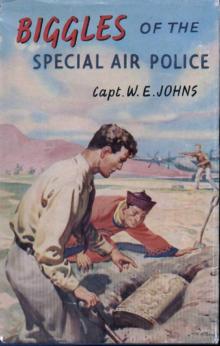 47 Biggles Of The Special Air Police
47 Biggles Of The Special Air Police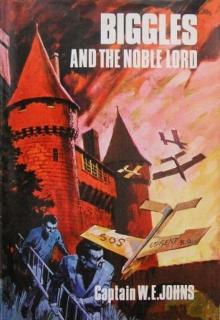 Biggles and the Noble Lord
Biggles and the Noble Lord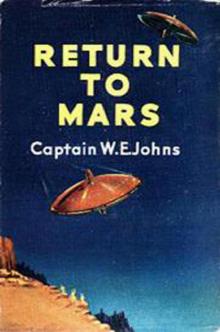 T2 Return To Mars
T2 Return To Mars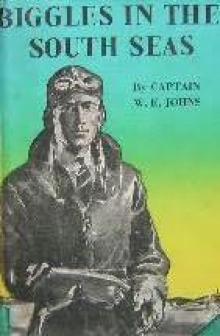 21 Biggles In the South Seas
21 Biggles In the South Seas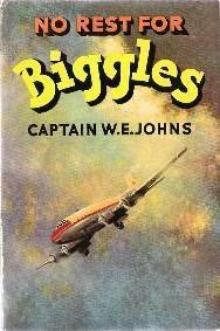 No Rest For Biggles
No Rest For Biggles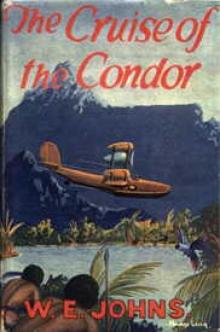 Biggles In The Cruise Of The Condor (02)
Biggles In The Cruise Of The Condor (02)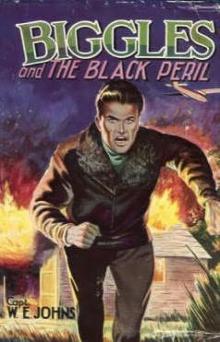 06 Biggles And The Black Peril
06 Biggles And The Black Peril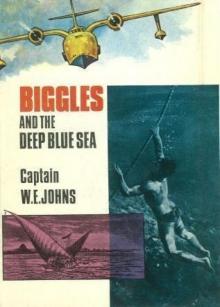 Biggles and the Deep Blue Sea
Biggles and the Deep Blue Sea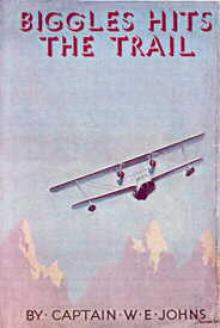 06 Biggles Hits The Trail
06 Biggles Hits The Trail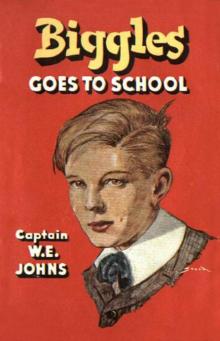 39 Biggles Goes To School
39 Biggles Goes To School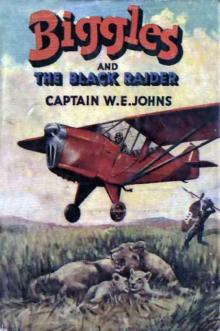 44 Biggles and the Black Raider
44 Biggles and the Black Raider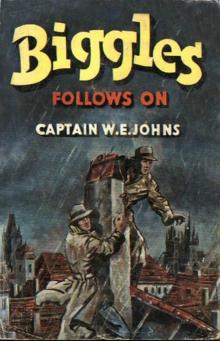 42 Biggles Follows On
42 Biggles Follows On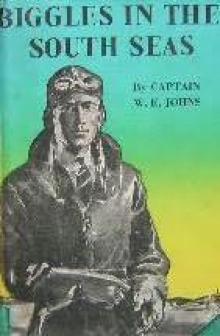 Biggles In the South Seas
Biggles In the South Seas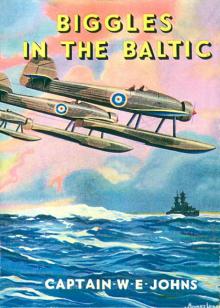 21 Biggles In The Baltic v3
21 Biggles In The Baltic v3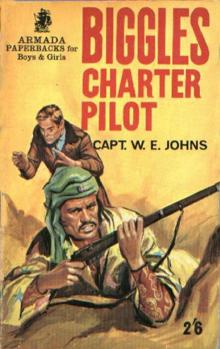 27 Biggles - Charter Pilot
27 Biggles - Charter Pilot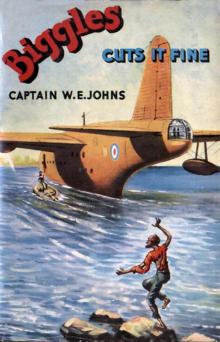 49 Biggles Cuts It Fine
49 Biggles Cuts It Fine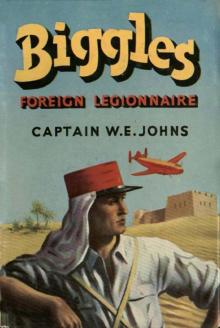 51 Biggles Foreign Legionaire
51 Biggles Foreign Legionaire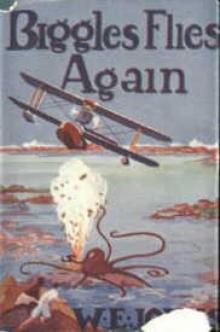 04 Biggles Flies Again
04 Biggles Flies Again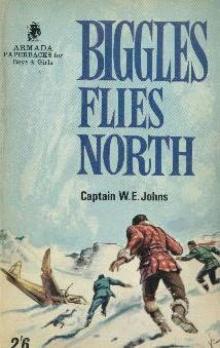 16 Biggles Flies North
16 Biggles Flies North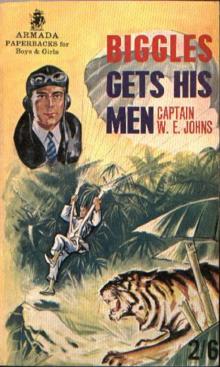 37 Biggles Gets His Men
37 Biggles Gets His Men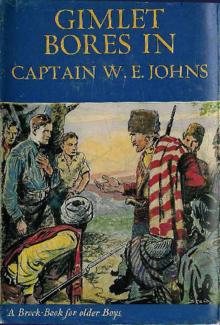 07 Gimlet Bores In
07 Gimlet Bores In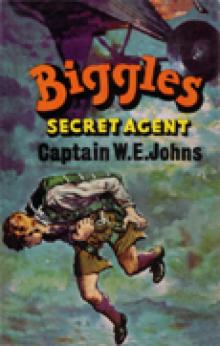 19 Biggles Secret Agent
19 Biggles Secret Agent 32 Biggles In The Orient
32 Biggles In The Orient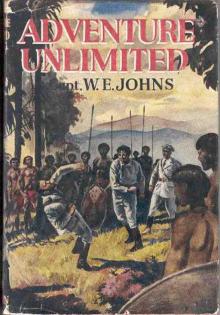 Adventure Unlimited
Adventure Unlimited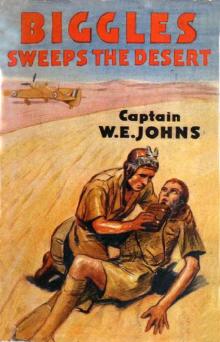 26 Biggles Sweeps The Desert
26 Biggles Sweeps The Desert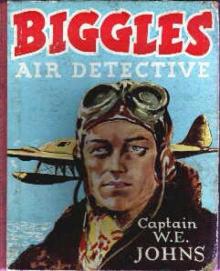 Biggles Air Detective (43)
Biggles Air Detective (43) 36 Biggles Breaks The Silence
36 Biggles Breaks The Silence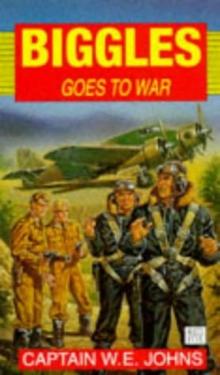 14 Biggles Goes To War
14 Biggles Goes To War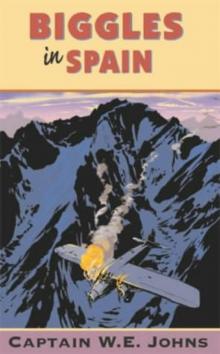 18 Biggles In Spain
18 Biggles In Spain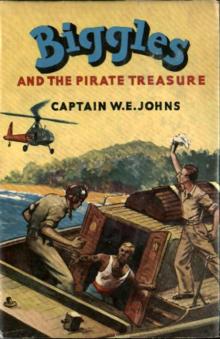 50 Biggles and the Pirate Treasure
50 Biggles and the Pirate Treasure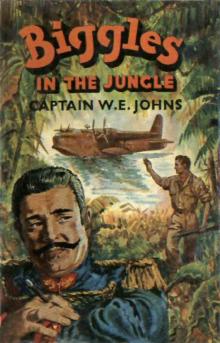 25 Biggles In The Jungle
25 Biggles In The Jungle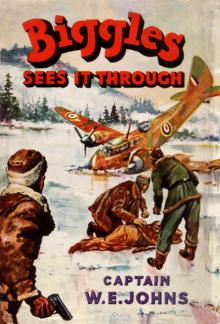 23 Biggles Sees It Through
23 Biggles Sees It Through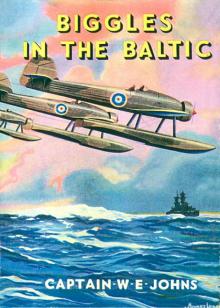 21 Biggles In The Baltic
21 Biggles In The Baltic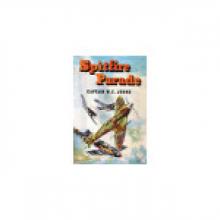 24 Spitfire Parade
24 Spitfire Parade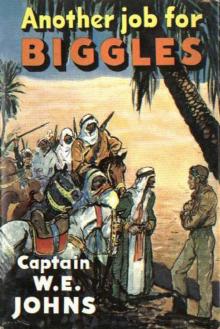 38 Another Job For Biggles
38 Another Job For Biggles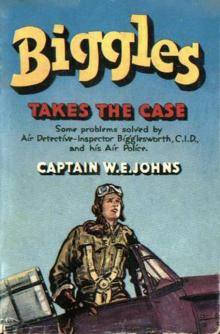 41 Biggles Takes The Case
41 Biggles Takes The Case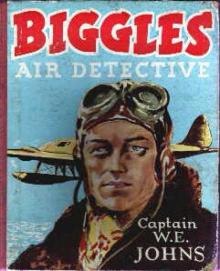 43 Biggles Air Detective
43 Biggles Air Detective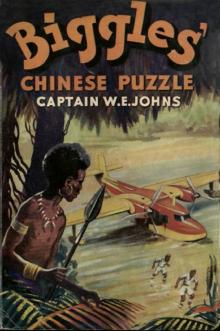 53 Biggles Chinese Puzzle
53 Biggles Chinese Puzzle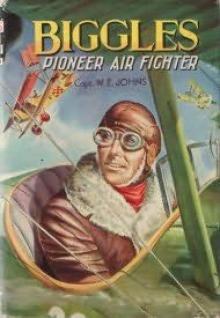 Biggles Pioneer Air Fighter (51)
Biggles Pioneer Air Fighter (51)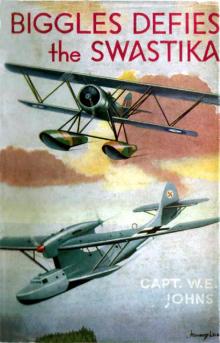 22 Biggles Defies The Swastika
22 Biggles Defies The Swastika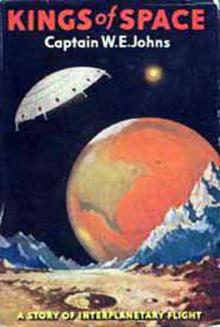 01 Kings Of Space
01 Kings Of Space